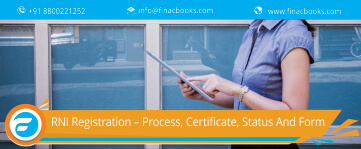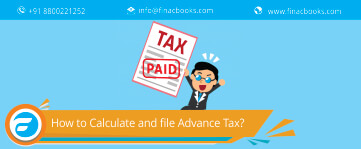When is Value Added Tax (VAT) registration required?
Businesses are required to register for Value Added Tax (VAT) when the business turnover goes above the threshold limit. VAT taxable turnover is the over-all worth of everything the business sells that isn’t VAT exempt. It is imperative to register for Value Added Tax with HM Revenue and Customs (HMRC) if the total business sales crosses the present registration threshold in a 12-month rolling period. Also, it must be noted that this period is not a defined period such as a calendar year or tax year – it can be any 12-month period, for instance beginning in June to ending in May, the subsequent year. In order to verify if the business has exceeded the threshold in a span of 12-month, sum the total value of sales made in the United Kingdom that aren’t exempt from Value Added Tax exempt.
This can include the following:

Then in such a scenario it is considered as a supply for oneself, usually referred to as a self-supply, and the business must pay Value Added Tax for such services and the amount must reflect in the VAT return for the time-period in which the work was completed. However, the business does not account for a self-supply duty if the work was zero-rated. If a business is not recorded for Value Added Tax, the cost of self-supply will make it mandatory for the business to register. The business should inform HMRC about the obligation to register when the business is aware that the work will be accomplished within the following 30 days. It is advisable for the business to register intentional at an earlier time
Essential registration for Value Added Tax (VAT)
It is mandatory for businesses, in the United Kingdom, to register for Value Added Tax if:
Additionally, the business will also be required to register for Value Added Tax if the business sells services or goods that are exempt from VAT but goods are purchased in excess of £85,000 from European Union (EU) VAT-registered traders to use for business purpose. A business, in the United Kingdom, must register inside 30 days of the business gross revenue surpassing the threshold. If a business files a late registration, the business will be required to pay an amount equivalent to what the business owed from when it should have registered
As per the rules from the government, the Value Added Tax listing and deregistration limit will not alter for a period of 2 years starting 1 April 2018. The taxable gross revenue threshold which governs whether an individual should registered for VAT, will continue to be £85,000. Also, the taxable gross revenue threshold which governs whether an individual should file for deregistration will continue to be £83,000. These registration and deregistration limit for appropriate acquisitions from other European Union Member States will continue to be at £85,000 whilst the United Kingdom is a member of the European Union. The United Kingdom Value Added Tax registration limit, presently fixed at £85,000, enables businesses to opt for pre-registration or register of their own accord. The deregistration limit for chargeable goods, presently fixed at £83,000, is less than the registering limit to circumvent business activities, around threshold level, having to regularly to register and deregister. This threshold limit is the maximum threshold in the European Union and keeps approximately 3 million small industries out of VAT
Previous threshold limit
Below mentioned are the Value Added Tax (VAT) rates applicable after 21-Mar-1990. Prior to this date, the rules were different and businesses were required to look at their previous and upcoming taxable turnover while deciding whether to register for VAT or not. Additionally, there was a 3-month limit and a yearly limit
| Time Period for Registration limits - taxable supplies | Annual limit (in £) | |
| Start date | End date | |
| 21-Mar-90 | 19-Mar-91 | £25,400 |
| 20-Mar-91 | 10-Mar-92 | £35,000 |
| 11-Mar-92 | 16-Mar-93 | £36,600 |
| 17-Mar-93 | 30-Nov-93 | £37,600 |
| 01-Dec-93 | 29-Nov-94 | £45,000 |
| 30-Nov-94 | 28-Nov-95 | £46,000 |
| 29-Nov-95 | 26-Nov-96 | £47,000 |
| 27-Nov-96 | 30-Nov-97 | £48,000 |
| 01-Jan-97 | 31-Mar-98 | £49,000 |
| 01-Apr-98 | 31-Mar-99 | £50,000 |
| 01-Apr-99 | 31-Mar-00 | £51,000 |
| 01-Apr-00 | 31-Mar-01 | £52,000 |
| 01-Apr-01 | 24-Apr-02 | £54,000 |
| 25-Apr-02 | 09-Apr-03 | £55,000 |
| 10-Apr-03 | 31-Mar-04 | £56,000 |
| 01-Apr-04 | 31-Mar-05 | £58,000 |
| 01-Apr-05 | 31-Mar-06 | £60,000 |
| 01-Apr-06 | 31-Mar-07 | £61,000 |
| 01-Apr-07 | 31-Mar-08 | £64,000 |
| 01-Apr-08 | 30-Apr-09 | £67,000 |
| 01-May-09 | 31-Mar-10 | £68,000 |
| 01-Apr-10 | 31-Mar-11 | £70,000 |
| 01-Apr-11 | 31-Mar-12 | £73,000 |
| 01-Apr-12 | 31-Mar-13 | £77,000 |
| 01-Apr-13 | 31-Mar-14 | £79,000 |
| 01-Apr-14 | 31-Mar-15 | £81,000 |
| 01-Apr-15 | 31-Mar-16 | £82,000 |
| 01-Apr-16 | 31-Mar-17 | £83,000 |
| 01-Apr-17 | 31-Mar-18 | £85,000 |
| Time Period for Registration limits - acquisitions | Annual limit (in £) | |
| Start date | End date | |
| 01-Jan-94 | 31-Dec-94 | £45,000 |
| 01-Jan-95 | 31-Dec-95 | £46,000 |
| 01-Jan-96 | 31-Dec-96 | £47,000 |
| 01-Jan-97 | 31-Dec-97 | £48,000 |
| 01-Jan-98 | 31-Mar-98 | £49,000 |
| 01-Apr-98 | 31-Mar-99 | £50,000 |
| 01-Apr-99 | 31-Mar-00 | £51,000 |
| 01-Apr-00 | 31-Mar-01 | £52,000 |
| 01-Apr-01 | 24-Apr-02 | £54,000 |
| 25-Apr-02 | 09-Apr-03 | £55,000 |
| 10-Apr-03 | 31-Mar-04 | £56,000 |
| 01-Apr-04 | 31-Mar-05 | £58,000 |
| 01-Apr-05 | 31-Mar-06 | £60,000 |
| 01-Apr-06 | 31-Mar-07 | £61,000 |
| 01-Apr-07 | 30-Mar-08 | £64,000 |
| 01-Apr-08 | 30-Apr-09 | £67,000 |
| 01-Apr-09 | 31-Mar-10 | £68,000 |
| 01-Apr-10 | 31-Mar-11 | £70,000 |
| 01-Apr-11 | 31-Mar-12 | £73,000 |
| 01-Apr-12 | 31-Mar-13 | £77,000 |
| 01-Apr-13 | 31-Mar-14 | £79,000 |
| 01-Apr-14 | 31-Mar-15 | £81,000 |
| 01-Apr-15 | 31-Mar-16 | £82,000 |
| 01-Apr-17 | 31-Mar-18 | £85,000 |
Purchasing a Value Added Tax (VAT) registered company in the United Kingdom
A number of agencies have been registered in the United Kingdom that deal with the purchasing and selling of a VAT registered company. New businesses in the United Kingdom can contact agencies such as DNS to purchase a company with a registered VAT number. A company, previously registered for VAT, comes with an advantage and the agencies selling such companies usually manage the company registration process along with creating and filing essential documents with the authorities. Usually, the time to VAT register a company in the UK is 2-3 weeks, however, it can take longer if the request is subject to additional authorisation by HMRC.
An application can be subject to additional checks for either of the below mentioned reasons:
HMRC might be looking for such information to authenticate that the set-up is genuine, and the company will be trading in the UK. In order to avoid such hassles, a pre-registered VAT company can come in very handy. Purchasing a Value Added Tax registered company helps the business owners to begin trade immediately. Such a company enables the business to escape delays and also protect the business from any rejection of application. The entire process of purchasing a VAT registered company takes around 2-3 days and it is not mandatory for the owners to be physically present – all the documentation can be done online. Necessary documents will include identification proof such as passport etc. and copies of address proof such as utility bills etc.
Major advantage of purchasing a company with a registered VAT number is – business can begin trading instantaneously and lay emphasis exclusively on generating revenue and maximising the bottom-line. The process of incorporating a new company requires a lot of form-filling and can seem pretty unnerving. VAT registration, filing returns on time and constant administration is one space that many companies find it difficult to remain on top of in the United Kingdom. The process to transfer a ready-made corporation with VAT number is fast and stress-free, and the business gets the advantage of a previously registered business minus any possibility of debts or other obligations. The transfer process also enables necessary amendments to business address, company director, company secretary, and shareholders. The agency is responsible for such amendments at the time of transfer.
Below mentioned are the additional details about a VAT registered company:
Make sure that the business is appropriately registered for Value Added Tax with HMRC in the UK – it is crucial for a business with gross revenue above the threshold limit to be VAT registered. DNS can assist businesses with a range of ready-made companies of diverse ages that have necessary documentation, comprising VAT registration number, certificate of incorporation, and articles of association. Such companies with a VAT number are also registered with a nominee shareholder, nominee director, and a registered office address; it is also assured that the company has been inactive since the date of its incorporation
Contact HMRC
For any query related to VAT registration, in the United Kingdom, businesses can contact Steven Williams on:











